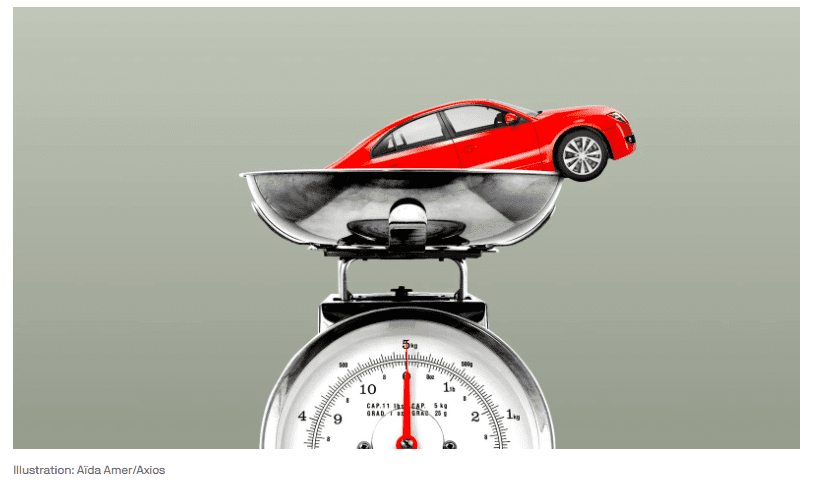EVs are much heavier than gas vehicles, and that’s posing safety problems

“Since we’re seeing pedestrian and roadway fatalities at record levels, the introduction of more weight into crashes via EVs will complicate any attempts to reduce the ongoing fatality crisis that has showed no signs of abating,” Center for Auto Safety executive director Michael Brooks tells Axios in an email.
By Nathan Bomey
April 28, 2023
Vehicles are adding poundage as the auto industry goes electric — and that’s problematic for traffic safety, parking garages and roads.
Why it matters: Gas vehicles are slowly giving way to electric vehicles as investors, regulators and consumers clamor for more environmentally sustainable transportation.
State of play: Electric vehicles can be anywhere from hundreds to thousands of pounds heavier than similarly sized gas vehicles because EV batteries are so much heavier than engines.
For example, the 2023 GMC Hummer EV, a full-size pickup, weighs more than 9,000 pounds, sporting a 2,900-pound battery. In comparison, the 2023 GMC Sierra, also a full-size pickup, weighs less than 6,000 pounds, according to Kelley Blue Book. The average weight of U.S. vehicles has already increased from about 3,400 pounds to 4,300 pounds over the last 30 years as Americans have ditched passenger cars for pickups and SUVs, according to Evercore ISI analysts.
Threat level: Safety watchdogs are raising concerns after the recent deadly collapse of a parking garage in New York City called attention to the challenge of creaking infrastructure.
Click here to view the full story from Axios.






